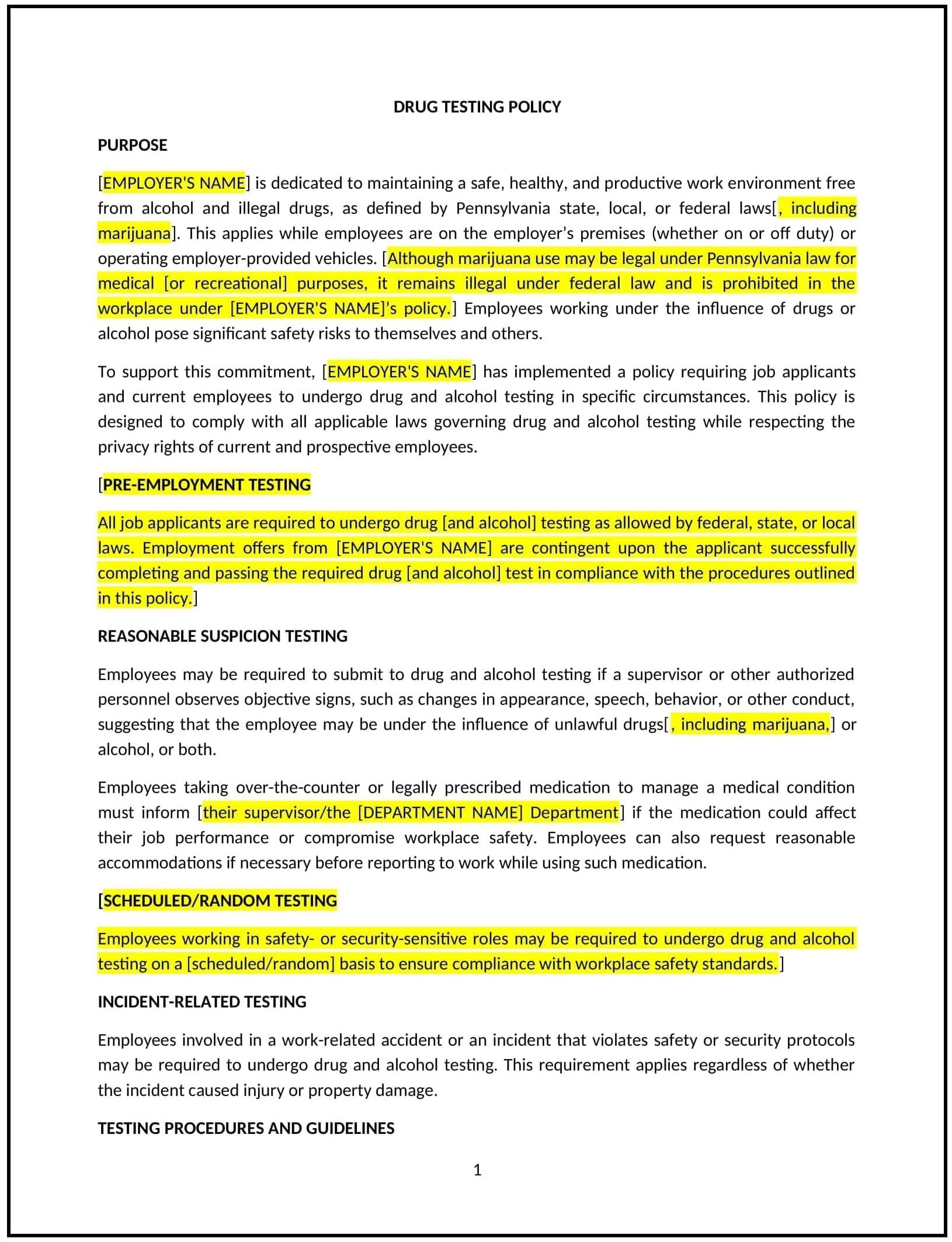Got contracts to review? While you're here for policies, let Cobrief make contract review effortless—start your free review now.

Customize this template for free
Drug testing policy (Pennsylvania)
This drug testing policy is designed to help businesses in Pennsylvania establish a fair and consistent approach to maintaining a drug-free workplace. Whether operating in safety-critical industries, complying with federal regulations, or promoting workplace health, this template provides guidelines for conducting drug testing while respecting employee rights and adhering to Pennsylvania-specific labor laws.
By using this template, businesses can enhance workplace safety, reduce risks, and foster a culture of accountability and well-being.
How to use this drug testing policy (Pennsylvania)
- Define testing purposes: Clearly specify the reasons for drug testing, such as pre-employment screening, post-accident testing, or random testing for safety-sensitive roles.
- Establish procedures: Provide detailed steps for conducting drug tests, including consent requirements, testing methods, and notification processes.
- Address confidentiality: Include protocols for securely handling and storing test results to protect employee privacy.
- Outline consequences: Specify the actions the business will take if an employee fails or refuses a drug test, ensuring alignment with Pennsylvania and federal regulations.
- Reflect Pennsylvania-specific considerations: Tailor the policy to address local labor laws, such as restrictions on testing practices or industry-specific requirements.
Benefits of using a drug testing policy (Pennsylvania)
A well-structured drug testing policy supports safety and compliance. Here's how it helps:
- Promotes workplace safety: Reduces the risk of accidents or injuries caused by substance use, particularly in high-risk industries.
- Encourages accountability: Sets clear expectations for maintaining a drug-free workplace and outlines consequences for violations.
- Protects privacy: Ensures employee rights are respected through secure handling of test results and adherence to legal standards.
- Reduces risks: Helps businesses comply with Pennsylvania labor laws and federal regulations, minimizing legal exposure.
- Supports workforce well-being: Demonstrates a commitment to a healthy and productive work environment.
Tips for using a drug testing policy (Pennsylvania)
- Communicate expectations: Share the policy with employees during onboarding and provide regular updates to ensure understanding.
- Train supervisors: Equip managers with the tools to recognize signs of substance use and handle testing procedures appropriately.
- Use certified labs: Partner with accredited testing facilities to ensure accurate and reliable results.
- Monitor compliance: Regularly review testing practices to ensure they align with Pennsylvania laws and industry standards.
- Review periodically: Update the policy to reflect changes in Pennsylvania labor laws, federal regulations, or organizational needs.